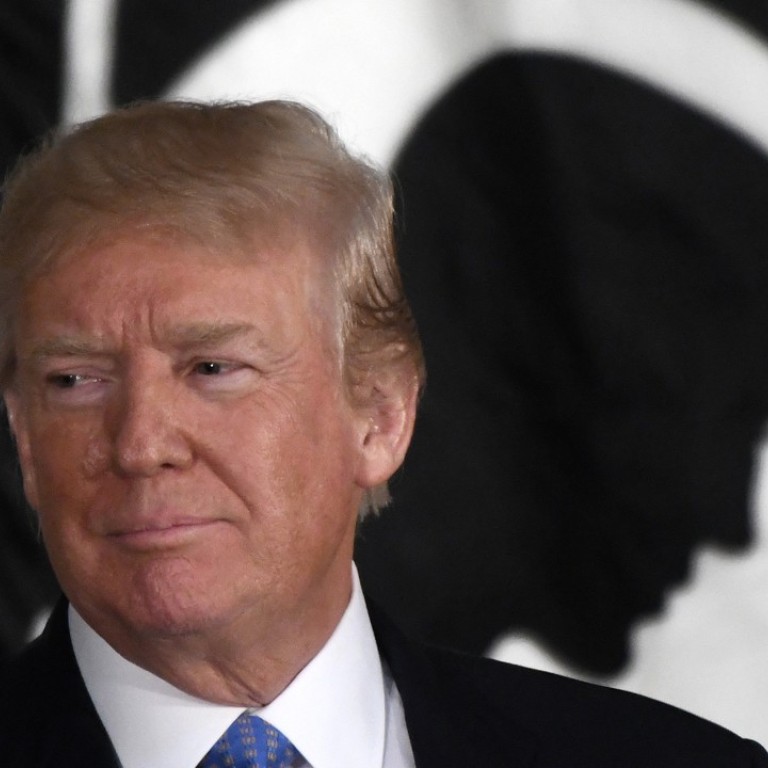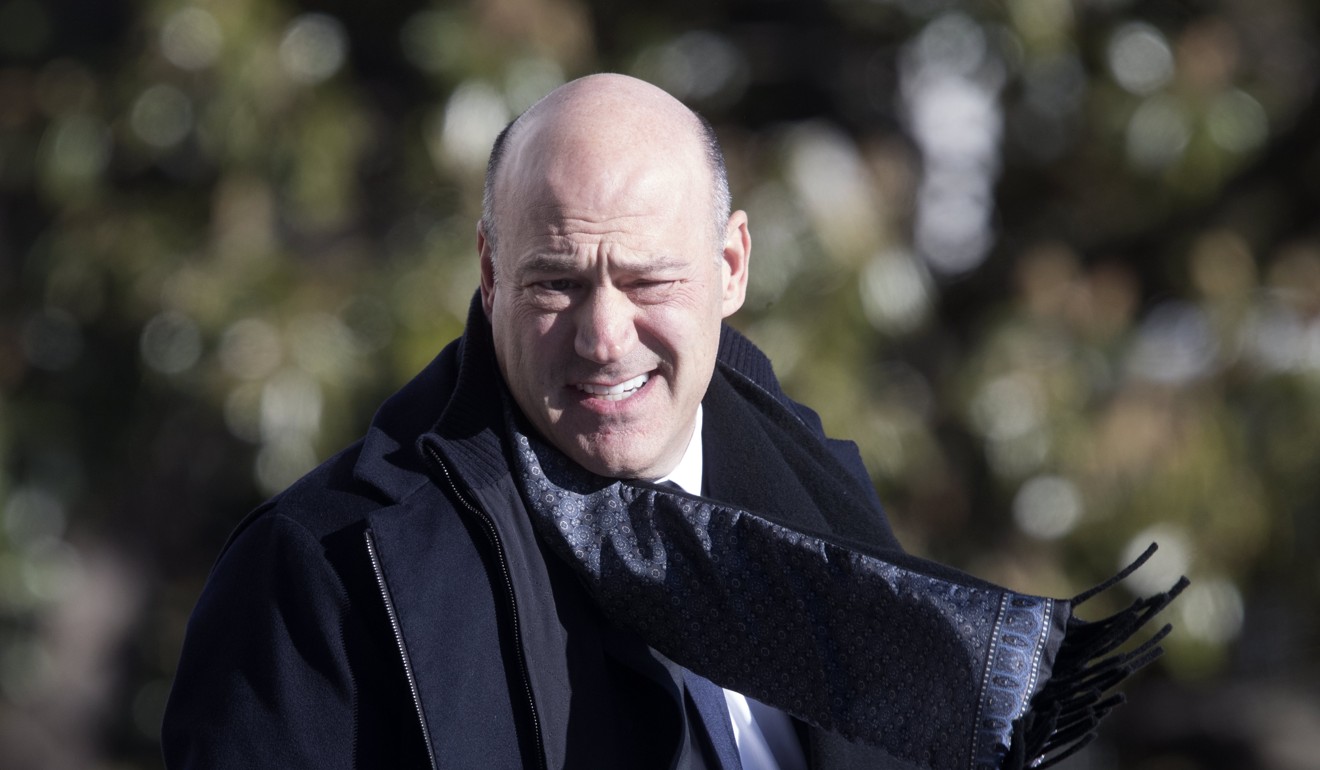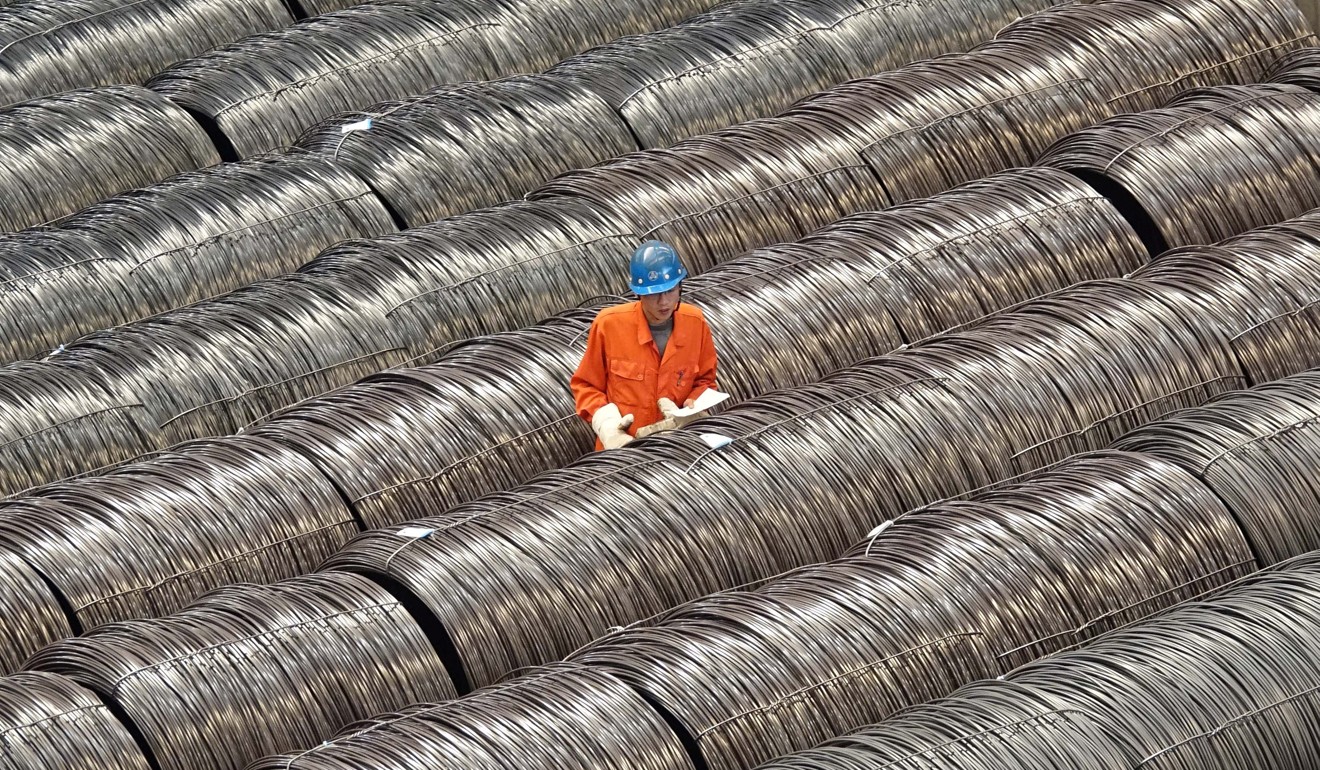
China questions credibility of US report on fake goods after Donald Trump’s ‘fine’ threat
Beijing says Washington lacks ‘solid evidence’ for listing Chinese e-commerce platforms and bazaars as ‘notorious markets’ for pirated and counterfeit goods
Beijing has expressed doubts over the credibility of recent moves by the US targeting the sale of fake goods and Chinese telecoms equipment, saying Washington lacked “solid evidence” and objectivity in its approach to Chinese businesses.
The remarks by commerce ministry spokesman Gao Feng came hours after US President Donald Trump said on Wednesday the US was considering a big “fine” as part of a probe into China’s alleged theft of intellectual property.
Trump’s comments as well as the annual report by the US trade representative last week on the world’s most “notorious markets” for sales of pirated and counterfeit goods were seen as clear indications that his administration will take retaliatory trade action against China.
“We have to question the objectivity and credibility of the relevant US department in issuing its report,” Gao told reporters at a news conference on Thursday. “The Chinese government has always attached great importance to the protection of intellectual property, the results of which are obvious to all.”
He said the US report lacked “solid evidence and supporting data” in listing three Chinese online commerce platforms and six physical bazaars within China as “notorious markets” engaging in commercial-scale copyright piracy and trademark counterfeiting, according to Xinhua.
“The two countries should resolve differences in a constructive way by pushing forward bilateral cooperation in IPR protection,” Gao said.
Trump and his economic adviser Gary Cohn said in an interview with Reuters that China had forced US companies to transfer their intellectual property to China as a cost of doing business there.
The United States has started a trade investigation into the issue and Cohn said the US trade representative would be making recommendations about it soon.
“We have a very big intellectual property potential fine going, which is going to come out soon,” Trump said in the interview.

While Trump did not specify what he meant by a “fine” against China, the 1974 trade law that authorised an investigation into China’s alleged theft of US intellectual property allows him to impose retaliatory tariffs on Chinese goods or other trade sanctions until China changes its policies.
Trump said the damages could be high, without elaborating on how the numbers were reached or how the costs would be imposed.
“We’re talking about big damages. We’re talking about numbers that you haven’t even thought about,” Trump said.
The US trade representative’s “notorious markets” list said the offending platforms and markets based in China and elsewhere caused financial losses for US businesses and copyright holders and could pose safety risks. It does not include punishment but the list aims to motivate private markets to reduce piracy and counterfeiting.
Among the online platforms listed was e-commerce giant Alibaba’s online marketplace Taobao, which has struggled for years to shed its reputation as an internet emporium for fake goods. Physical outlets included Beijing’s famed Silk Market and the Pearl Market that are popular with tourists.
Alibaba Group president Michael Evans said in a statement that the company has worked above and beyond on each of the list’s concerns to protect brands and copyright holders.
“In light of all this, it’s clear that no matter how much action we take and progress we make, the [US trade representative] is not actually interested in seeing tangible results,” Evans said, adding that the company had “no other choice but to conclude that this is a deeply flawed, biased and politicised process”. Alibaba owns the South China Morning Post.
Commenting on a US draft act to prohibit the government from using Chinese telecommunications services or equipment, Gao of China’s commerce ministry said the draft “to some extent sent a wrong signal to the market and will not be good for China-US telecommunications cooperation and hurt Chinese companies’ confidence in the US business and investment environment”.
Gao said the US should treat Chinese companies and products with an objective and fair attitude so that US customers can enjoy the benefits of Chinese products.
“Mutual benefits weigh more than differences in Sino-US economic and trade ties,” Gao said. “We hope that trade frictions do not upgrade, but will also take resolute actions to protect Chinese rights and interests.”
US businesses say they lose hundreds of billions of dollars in technology and millions of jobs to Chinese firms which have stolen ideas and software or forced them to turn over intellectual property as part of the price of doing business in China.
The president said he wanted the US to have a good relationship with China, but Beijing needed to treat the United States fairly.
Trump said he would be announcing some kind of action against China over trade and said he would discuss the issue during his State of the Union address to the US Congress on January 30.
Asked about the potential for a trade war depending on US action over steel, aluminium and solar panels, Trump said he hoped a trade war would not ensue.
“I don’t think so, I hope not. But if there is, there is,” he said.
Jeffrey Schott, a senior fellow at the Peterson Institute for International Economics, said the penalties under Section 301 of the Trade Act of 1974, which authorised the investigation into China’s intellectual property practices, would likely include a package of both tariffs and restrictions on Chinese investment in the United States.

Throughout his 2016 election campaign, Trump routinely threatened to impose a 45 per cent across-the-board tariff on Chinese goods as a way to level the playing field for American workers. At the time, he was also accusing China of manipulating its currency to gain an export advantage, a claim that his administration has since dropped.
Trump said on Wednesday that China stopped meeting the criteria for currency manipulation after his election and he said making that designation while trying to work with Beijing to rein in North Korea would be tricky.
“How do you say, ‘hey, by the way, help me with North Korea and I’m going to call you a currency manipulator?’ It really doesn’t work,” Trump said.
The president also said he and Chinese President Xi Jinping had not discussed China’s plans with regard to purchases of US Treasury bonds.
Bloomberg reported earlier this month that Chinese officials reviewing the country’s foreign exchange holdings had recommended slowing or halting purchases of US Treasury bonds.
Trump said he was not concerned such a move would hurt the US economy.
“We never talked about it. They have to do what they do,” he said.

